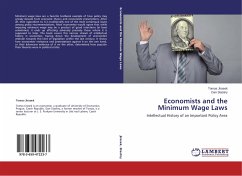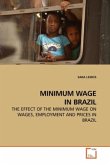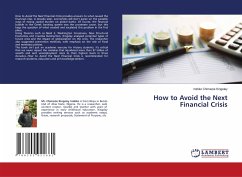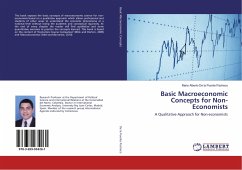Minimum wage laws are a favorite textbook example of how policy may grossly deviate from economic theory and economists' prescriptions. After all, their opposition to it is traditionally one of the most consensual issues among policy recommendations. Most economists would agree that while imposing minimum wage may be a product of good intentions (at least sometimes), it ends up affecting adversely precisely those whom it is supposed to help. The book covers this narrow stream of intellectual history in economics, tracing down the development of economists' attitude towards this kind of legislation within the last century. It shows how economists' resistance and protestations against it on the one hand, or their lukewarm embrace of it on the other, determined how popular their theories were in political circles.
Bitte wählen Sie Ihr Anliegen aus.
Rechnungen
Retourenschein anfordern
Bestellstatus
Storno








